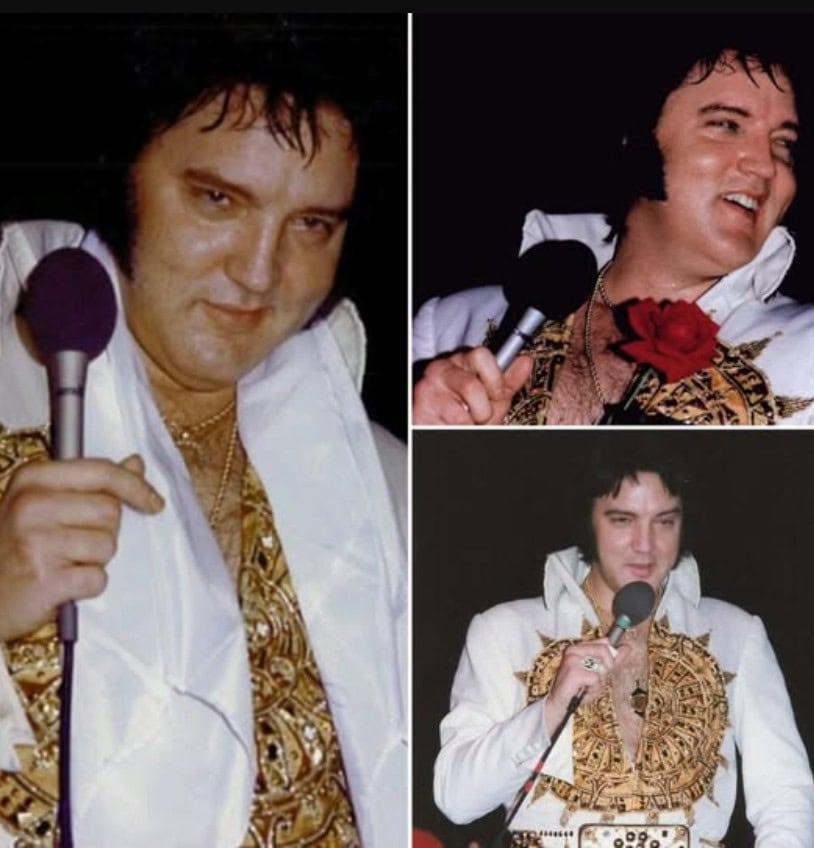
Introduction
When Elvis Presley took the stage in the late 1970s, the world was no longer looking at the untouchable King of Rock and Roll in his golden prime. What they saw instead was a man worn down by fame, loneliness, and the crushing weight of his own legend. And then came that song—“My Way.”
To casual listeners, it sounded like a classic Sinatra anthem, a proud declaration of living life on one’s own terms. But for Elvis, every word dripped with something darker—regret, pain, and a chilling sense of finality. This wasn’t just another performance. It was his confession. His farewell. His cry from the edge of the abyss.
Watch him in those last concerts: the trembling hands, the eyes heavy with sorrow, the once-mighty voice breaking under the truth of his own lyrics—“And now, the end is near…” Goosebumps. Because deep down, the audience knew. Elvis wasn’t singing to entertain. He was singing to warn us. He was already writing his own eulogy.
Weeks later, the prophecy of “My Way” became reality. Elvis was gone, found lifeless in Graceland, and suddenly the song that once belonged to Sinatra was forever tied to the tragedy of Presley. Fans replayed it over and over, realizing they had witnessed something almost supernatural—a man predicting his own fate on stage.
And that is why “My Way” will never just be another cover. It’s Elvis Presley’s last stand, his unflinching acknowledgment that the King was human after all, and that his crown came at a devastating cost.
So the question lingers: when you hear Elvis sing “I did it my way,” do you hear triumph… or the haunting sound of a man saying goodbye?